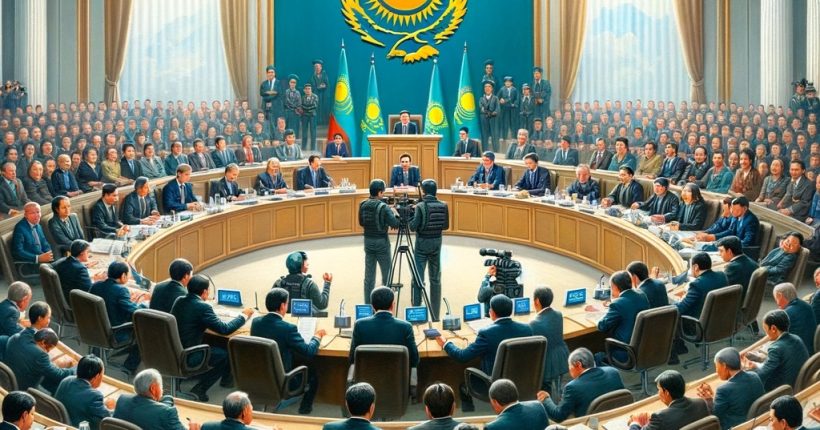50 %
Mechanism for Interaction between Kazakhstan’s Anti-Corruption Service and Civil Society Organizations in the Area of Public Procurement Monitoring
We aim to establish a mechanism for interaction to facilitate better collaboration between governmental and civil society organizations in combating corruption and enhancing transparency in public procurement. Through this mechanism, Kazakhstan’s Anti-Corruption Service will be able to actively engage with civil society organizations monitoring government acquisitions.
Key points
The tool will facilitate effective communication and collaboration between Kazakhstan’s Anti-Corruption Service and civil society organizations specializing in public procurement oversight. It will provide means for information sharing, feedback, and coordinated action.
The tool will be designed to maximize user-friendliness and optimize the efficiency of interactions between Kazakhstan’s Anti-Corruption Service and civil society organizations. It will feature an intuitive interface, quick access to information, data analytics functions, and report-generation capabilities.
The tool will be built upon the analysis and monitoring of government acquisitions in Kazakhstan. It will enable civil society organizations to keep tabs on procurement processes, identify potential corruption schemes, analyze data, and present their monitoring findings.
Strengthening transparency in public procurement and combating corruption will be a key focus. Through information sharing and joint efforts with civil society organizations, Kazakhstan’s Anti-Corruption Service will more effectively identify and mitigate instances of corruption in government acquisitions.
To ensure effective interaction and cooperation between Kazakhstan’s Anti-Corruption Service and civil society organizations in the field of public procurement monitoring, it will be necessary to develop and adopt legislative acts that establish the legal framework and mechanisms for such interaction.
Priority action plan
100 %
Preparation
-
Reviewed the legislation governing public procurement in Kazakhstan.
-
Familiarized ourselves with the role and function of Kazakhstan’s Anti-Corruption Service in preventing corruption.
-
Studied the experience of other countries or organizations involved in public procurement monitoring, and identified best international practices.
50 %
Requirements Definition and Planning
-
Identified key roles and functions in the interaction mechanism between civil society and the Anti-Corruption Service.
-
Gathered requirements from all key stakeholders, including Kazakhstan’s Anti-Corruption Service and civil society organizations. It’s important to understand how the interaction should take place.
50 %
Legislation Development
-
Members of the Kun Jarygy coalition have drafted an article for the new public procurement law outlining the public monitoring mechanism and have submitted it through the «Open Legislation» system for the new public procurement law project.
-
Develop and adopt a legislative act that establishes the legal framework and mechanisms for such interaction. The act should clearly define roles, functions, rights, and responsibilities for all parties involved.
0 %
Interaction Mechanism Development for Public Monitoring of Public Procurement with the Anti-Corruption Service
-
We are working on the development of a detailed interaction mechanism that includes information exchange, feedback loops, action coordination, and data analytics functionalities.
0 %
Training and Capacity Building
-
Conduct educational webinars for all interaction participants. This should help ensure that all stakeholders understand how to engage in public monitoring in collaboration with the Anti-Corruption Service to achieve anti-corruption objectives in public procurement.
0 %
Implementation of the Interaction Mechanism for Public Monitoring of Public Procurement with the Anti-Corruption Service
-
Nationwide dissemination of the interaction mechanism, within which civil society organizations can perform independent analysis of government procurement processes for goods and services.

